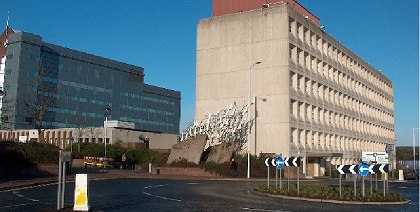
Fife Council are to take urgent action following the publication of an independent report on tackling poverty across the Kingdom.
The Fairer Fife Commission, an independent group of experts, published the 'Fairness Matters' report recently challenged the council, public services, charities and businesses to work together to deliver a 'significantly fairer Fife by 2030.' The report outlines over 40 recommendations which were discussed by councillors at Executive Committee.
Councillors heard a presentation on the report's findings and recommendations from Professor Carol Tannahill, one of the Fairer Fife Commissioners involved in the year-long project. Professor Tannahill is Director of the Glasgow Centre for Population Health and is also Chief Social Policy Adviser to the Scottish Government.
Fife Council Leader David Ross welcomed Carol's contribution and paid tribute to the work of the Commission. He commented:
''We set up the Commission to bring together people with Carol's expertise and experience across public, private and voluntary sectors.
The stark reality is that around 75,000 Fifers are affected by poverty, a situation that has to change.
Words now have to translate into action and we will be wasting no time in taking forward the far reaching vision set out in this report and start making a real difference to people’s lives.''
Recommendations listed in the report include building more affordable housing, encouraging a million more hours of volunteering a year, creating a new apprenticeship for every £1 million of public expenditure in Fife, a call for free travel cards for low income families, and more support for people facing welfare benefit sanctions.
Councillors agreed that a draft 'Fairer Fife Action Plan' should now be prepared and that the Commission's report should form a key part of the council's budget setting process. The council faces the challenge of saving of saving £75 million over the next three years.
Added Councillor Ross:
''It's vitally important that we now take these recommendations and make them part of the way we do business.
Although we won't know until 16 December what financial settlement we're getting from the Scottish Government next year, we know there are huge financial challenges ahead, as well as the social challenges outlined in this report. We need to talk more to residents, communities, and interest groups about these challenges because they affect everyone.
One of the Commission's recommendations is that we do more to make sure local people guide how money is spent in their areas through participatory budgeting and I'm keen to explore this with the public.
We've already agreed that ward councillors on our area committees will have responsibility for deciding how transportation, parks, streets and open spaces and estate management budgets are spent in their local area. But how can local people get more involved in decisions about the services where they live?
The council has already run several successful participatory budgeting exercises across the Kingdom. A recent event in Kelty in partnership with the Coalfields Regeneration Trust was a great example of a local community coming together and deciding its own priorities. Local groups bid for a share of £30,000, jointly funded by the Trust and the council. As a result the local bowling club will get a new extension, the art club will receive new equipment, the Scout Club will gain disabled access and toilets and local bands will receive new instruments. We need to talk about how schemes like this could be extended to involve more people, more services and more significant sums of money.''


 Man, 44, seriously injured in hospital after crash between Comrie and Rosyth
Man, 44, seriously injured in hospital after crash between Comrie and Rosyth
 John Swinney announces SNP leadership bid
John Swinney announces SNP leadership bid
 Closures on A92 from TONIGHT for roadworks
Closures on A92 from TONIGHT for roadworks
 11°C
11°C
 17°C
17°C